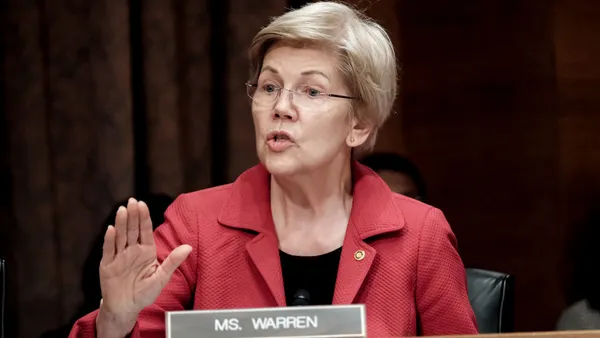Credit Suisse could face a probe and disciplinary action over how top managers ran the bank in the run-up to its collapse and takeover last week by UBS, Marlene Amstad, president of the Swiss regulator Finma, told the newspaper NZZ am Sonntag, according to Bloomberg.
"CS had a cultural problem that translated into a lack of responsibilities," Amstad said. "Numerous mistakes were made over several years.”
The development comes, too, as the head of Credit Suisse’s largest shareholder has resigned.
Ammar Al Khudairy, chairman of Saudi National Bank, stepped down “due to personal reasons,” according to a statement issued Monday and seen by Bloomberg.
As Credit Suisse experienced a liquidity crisis this month, Al Khudairy said the Saudi National Bank would not boost its stake in the Swiss lender. Credit Suisse went on to borrow $54 billion from the Swiss National Bank.
Al Khudairy cited “many reasons.”
“If we go above 10%, all new rules kick in, whether it be by our regulator or the Swiss regulator or the European regulator,” he said. “We’re not inclined to get into a new regulatory regime. I can cite five or six other reasons, but one reason is there is a glass ceiling and we’re not going to entertain going beyond it.”
His comments led to the biggest sell-off in Credit Suisse’s history, with shares plunging 30% at one point on March 16. The Swiss government arranged a rescue plan in the form of a takeover by UBS, its biggest rival.
“The SNB Chairman was a victim of giving his honest opinion at such a tense time for Credit Suisse,” Mohammed Ali Yasin, capital markets specialist and investment advisor, told Bloomberg. “In hindsight, seeing the buyout rate of CS by UBS, his answer was the right course of action: awaiting for the crisis to be clearer.”
The Saudi National Bank’s chief executive, Saeed Al Ghamdi, will replace Al Khudairy as chair.
More on Finma
As for Swiss regulation, Finma’s primary area of focus is “the transitional phase of integration” and “preserving financial stability,” Amstad said.
“[W]e’re not a law enforcement agency, but we’re exploring options,” Amstad said when asked whether Credit Suisse managers will be held accountable for the lender’s collapse.
Swiss politicians and citizens, however, criticized the UBS deal and questioned whether more could have been done to prevent Credit Suisse’s failure.
Credit Suisse had six enforcement actions against it in recent years, which point to Finma’s early intervention to tackle the problems, Amstad noted.
“We intervened earlier, and very intensively, where there were breaches of supervisory law. But especially when we act harshly, it usually doesn’t become public,” she told NZZ. “Imagine if it had become known that we were already working on CS’s restructuring order in November or that we had asked CS to prepare alternative solutions for the case that had just occurred.”
UBS will face “progressively higher capital and liquidity requirements,” Amstad said.
Meanwhile, Finma defended its decision to write down 16 billion Swiss francs of Credit Suisse’s Additional Tier 1 debt to zero as part of the merger conditions.
"The AT1 instruments contractually provide that they will be fully written off in the event of a trigger event, in particular the granting of extraordinary government support," Amstad said, according to Reuters.
"The bonds were created precisely for such situations,” she added.
Urban Angehrn, Finma’s CEO, defended the watchdog’s role in tackling the lender’s problems prior to the buyout.
"We intervened consistently in these cases, used our instruments, and they had an effect," Angehrn told Reuters. "We do not run the bank. That responsibility lies with the board of directors and the management of the bank."
Discussions were ongoing to widen Finma’s competencies, including its ability to issue fines, he added.
Like Amstad, Angehrn stressed the importance of a “senior managers regime,” which he said “could help with the issue of manager responsibility.”
“FINMA is limited in communicating cases,” he said, according to Reuters.












